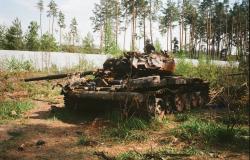
The Russian invasion of Ukraine in February 2022 ended the hybrid stage of conflict that emerged in 2014, following the Russian illegal annexation of Crimea and proxy aggression in East Ukraine. Empirical data demonstrate a two-fold interplay between grey zone strategies and applicable rules. ‘Lawfare’ instruments affect jus ad bellum, permitting multiple political choices and the deployment of different means of hybrid warfare. A grey zone conflict itself develops conflicting and overlapping sets of rules supported by different actors. Eventually, additional rules may emerge due to the actions or interactions of conflicting parties; these rules focus on conflict management or settlement.
Policy Implications
- Russia's open invasion of Ukraine in February 2022 revealed a problem in previous assessments of hybrid warfare as a ‘milder’ and less violent form of confrontation. There is a need to create a clear distinction between strategies of ‘using’ and ‘misusing’ (or, more precisely, abusing) the law in achieving military objectives. This may help to draw the line between acceptable and unacceptable actions.
- Two approaches to conflict management can be taken by global (regional) security organisations, namely, the delegitimisation and formalisation of grey zone conflicts. While delegitimisation means the intensification of efforts to acknowledge the responsibility of state actors in grey zone conflict, formalisation implies recognition of the blended character of grey zone conflicts and the participation of non-state actors, thus bringing grey zone conflicts under some legal regulation—at least in terms of protecting the civilian population.
- A broad international non-recognition regime is instrumental in preventing aggressors from entrenching themselves in contested territories by exporting their political and legal institutions. This is especially important when the aggressor is a permanent UN Security Council member, which excludes this institution from enforcing international law. A discussion is needed on the possibility of supporting the non-recognition regime by the broadest possible range of actors (international organisations, states, and non-state actors) that traditionally refrain from participating in such matters.
- To open an avenue for resolving grey zone conflicts and preventing escalation, it is necessary to create international monitoring mechanisms and procedures to establish facts and attribute actions to different actors. This would help to overcome legal ambiguity and establish a common rule of recognition towards the relevant sources of law, helping to formulate and implement measures to resolve the conflict.
Photo by Mikhail Volkov